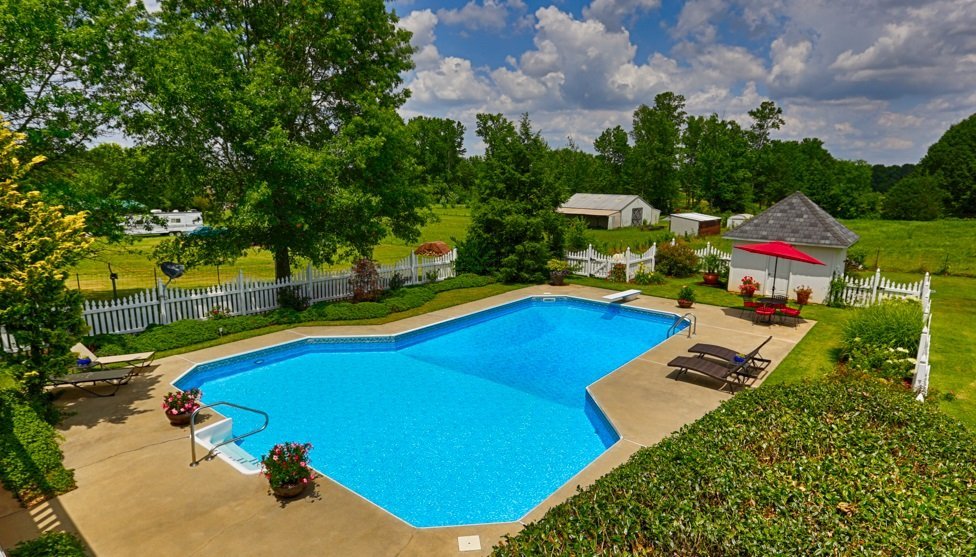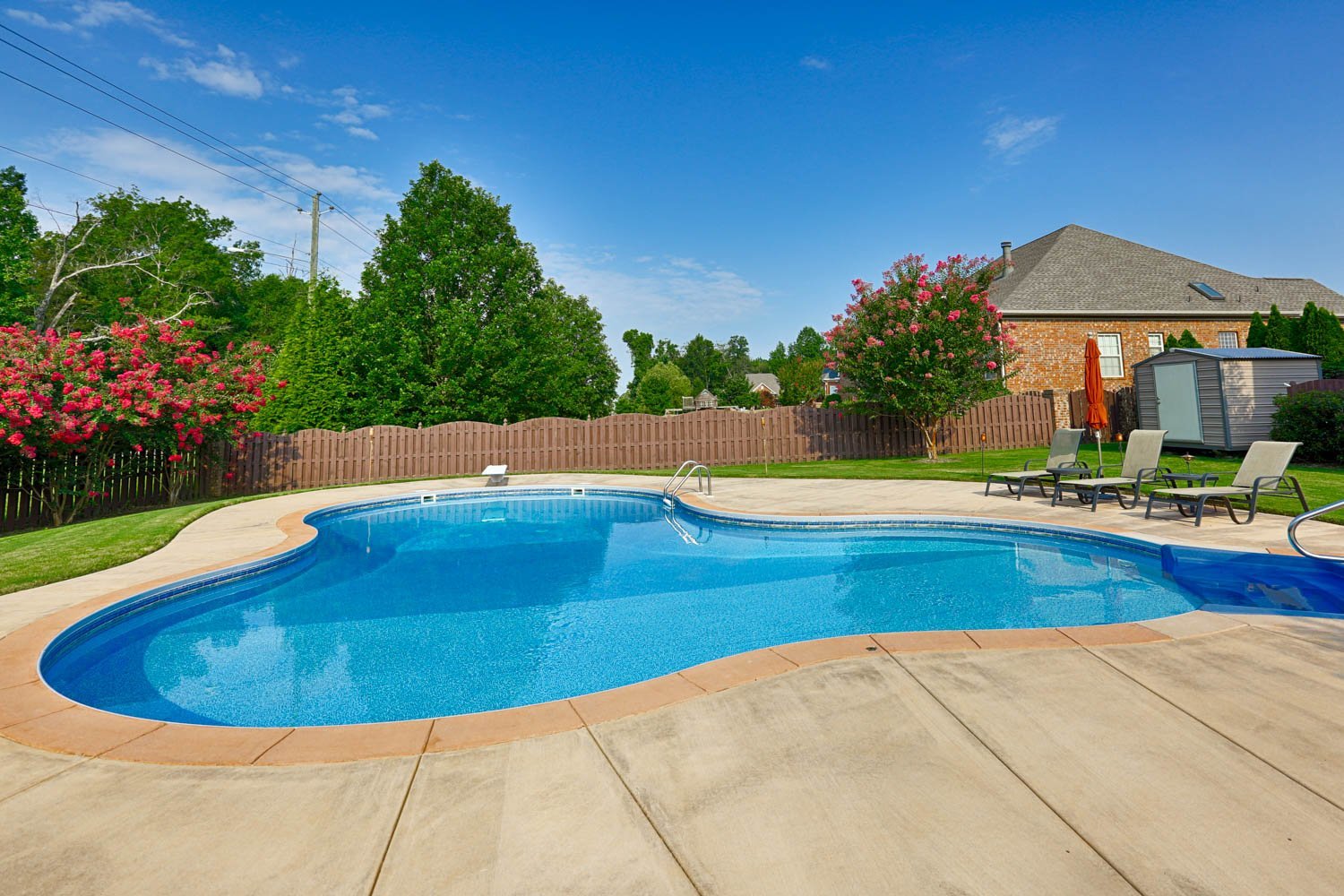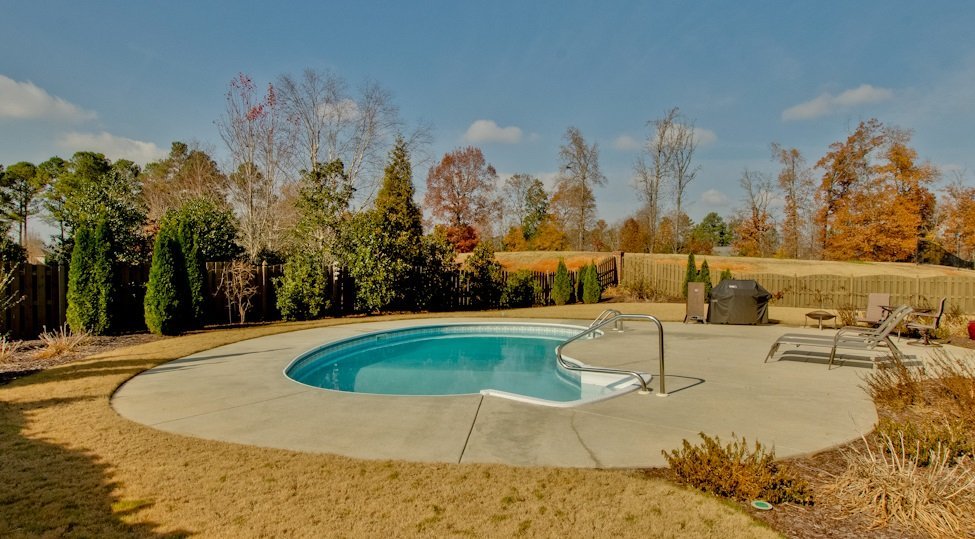Thinking a family pool is the perfect way to spend your summer and wondering how it will affect the value of your home?
The average cost to install, equip, and maintain a pool has an initial cost of around $30,000. Throughout the swimming season, you may spend upwards of $500-$600 on chemicals to chlorinate and keep the pool at the appropriate levels. Fences around pools are also required in the state of Alabama, so if your backyard isn’t fenced in - this would be another cost associated with installing a pool.

While considering these costs, you may be asking yourself, “So will adding a pool to our home, increase the resale value of the home?” This is a great question that a lot of homeowners have when considering the installation of a pool. The answer isn’t always straight forward.
A hidden cost of installing pools would be in your tax rate, so while there is no definite “yes” or “no” as to whether the resale value of your home would increase, you can expect a slight increase in taxes due to the tax assessment of your home going up. This assessment could increase at the time you request the permit to put the pool in as well, so this hidden cost of pool ownership should be checked to see how exactly it would affect your taxes based on your municipality.
Home resale can be a completely different story all together. Under the right circumstances, a pool could increase your home resale value over 5%, but there are many conditions that affect whether this will hold true in your particular situation.
-
Not all potential homeowners want the responsibility and liability of a pool, so by adding a pool you may be actually limiting your pool of buyers.
-
Pools are often sought after in “warm states”, so in the state of Alabama you may see a higher draw from a pool than a northern state where the pool could be used for a lower amount of time throughout the year.
-
The pool needs to match the style and aesthetics of your neighborhood.
-
The pool should be well maintained, even buyers in the market for a pool will be dissuaded from a pool that looks like it needs major maintenance.
-
Space available in the backyard is a consideration that will vary from buyer to buyer, but if a pool takes up 90% of the usable space in the backyard area with little green space leftover - this could also become a negative point for buyers.
Different styles of pools
After you’ve decided that a pool is for you, then you have the decision of what type of pool to install. There are a variety of types of pools and sizes available, and a pool store can walk you through what specifications would be best for your allotted space.
There are two main types of water and filtration systems for your pool, chlorinated and saltwater. Although a salt water system converts the salt into chlorine, so both types will have chlorine in the water. Chlorinated pools are the most common, although saltwater pools have been gaining in popularity. The advantage of a saltwater pool is the lower amount of overall chlorination in the water.

There are three main types of inground pools: concrete (also called gunite), fiberglass, and vinyl liner. There are many pros and cons to each style:
Concrete:
Pros: Very customizable
Cons: Most expensive, frequent maintenance required, incompatible with salt
Fiberglass:
Pros: Low maintenance, quick to install, can be used with salt systems, low cost of lifetime ownership
Cons: Initial cost higher than vinyl liners, pool shape/sizes not customizable so they won’t work for all spaces
Vinyl Liner:
Pros: Lowest initial cost, shape can be customized
Cons: Liner must be replaced every 7-10 years, liner costs can make overall pool cost more expensive than fiberglass

How to service a pool
Keeping a pool in service can maintain its lifespan and overall just make owning the pool more enjoyable. No one wants to walk out to the pool to dive in on a Saturday morning, and find a green pool!
Checking the chemical levels daily can help ward off any issues before they become a big problem. Keeping supplies on hand like extra chlorine, ph up, ph down, baking soda, and algaecide makes it handy to be able to alter slight chemical imbalances. Skimming the pool multiple times a week up to daily may be needed depending on how many trees and foliage are in the surrounding pool area.
Pool service technicians can be hired to help you maintain the pool weekly, monthly, or even once a year to help with big tasks like opening or closing the pool.
All of the information above will help you to make an informed decision about whether a pool is right for your family or not. The bottom line is that a pool should be a good fit for your family first and foremost, as it may not necessarily have a positive effect on your home’s resale value.
Posted by Matt Curtis on

Send Us A Message